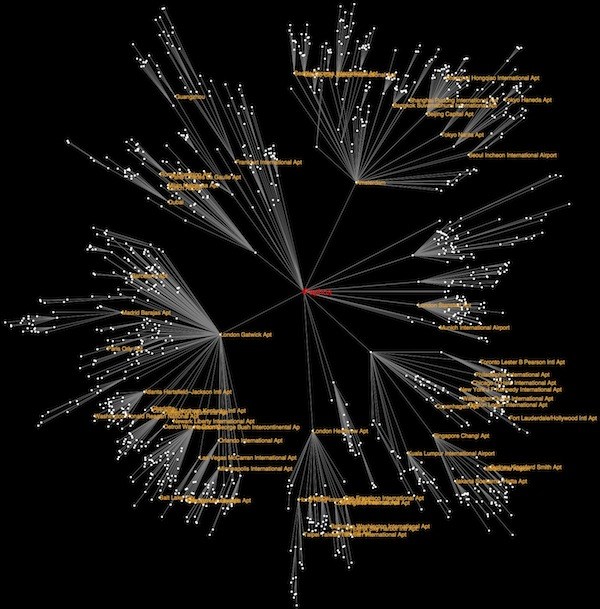Spring break is rapidly approaching in many provinces, and for some families, that means air travel. Visions of sand, surf and sun abound, but what are you inadvertently bringing home from vacation?
Scientists who study epidemics have long known that air travel fundamentally changed the way outbreaks spread. When people travelled primarily on foot, it was easy to predict how an epidemic would spread—an ripple spreading away from the centre.
The ease with which we travel means that picture now looks very different. Watch the animation below, and put yourself in the shoes of global emergency responders or health officials. Pandemics now spread in what appears to be a random way, making it difficult to predict and respond to them.
 However, a researcher of complex systems has come up with a stunningly simple way to predict the spread of pandemics. Instead of looking at geographic distances between cities—Halifax is more than 6,000 km from Vancouver—this new approach looks at the temporal distance—there's a direct flight between the two. This new map of the world looks like a spider web, instead of a series of continents.
However, a researcher of complex systems has come up with a stunningly simple way to predict the spread of pandemics. Instead of looking at geographic distances between cities—Halifax is more than 6,000 km from Vancouver—this new approach looks at the temporal distance—there's a direct flight between the two. This new map of the world looks like a spider web, instead of a series of continents.
Tracking the spread of outbreaks on this new map makes modern pandemics look much more familiar, and predicting their spread suddenly seems possible.
This new approach would allow emergency responders to anticipate needs, and scientists to figure out where the infection originated. After all, without seeing you throw the rock, any child could look at the expanding ripples and tell you where they started.
Technology and new ideas are reshaping the face of outbreaks, but some things never change: washing hands frequently with soap and warm water is still the best way to prevent infections. As spring break approaches, whether you’re flying away or going only as far as your neighbourhood park, don’t forget to maintain good hand washing habits, and you’ll go a long way towards preventing or stopping outbreaks in your own community.
Here's an article where you can learn more about this new approach to pandemic mapping.